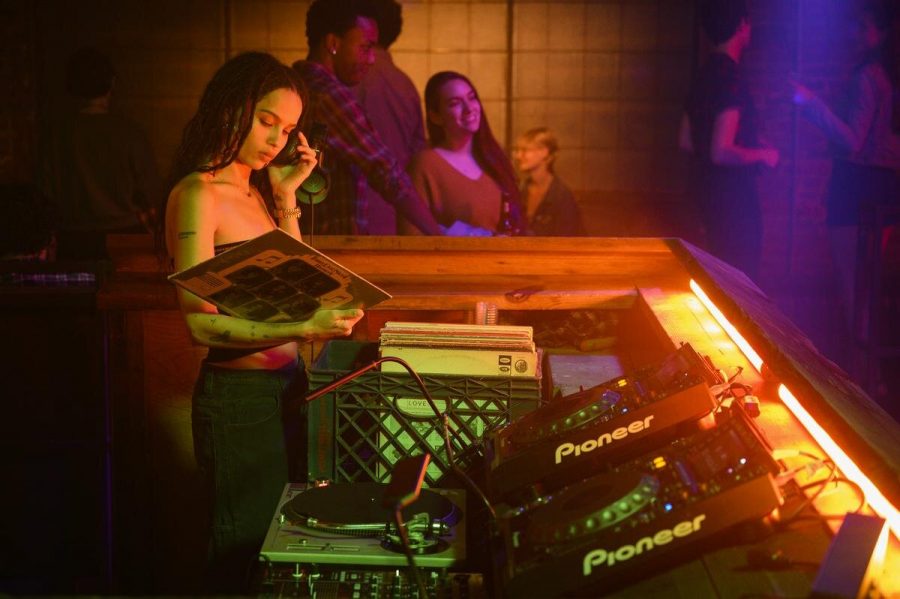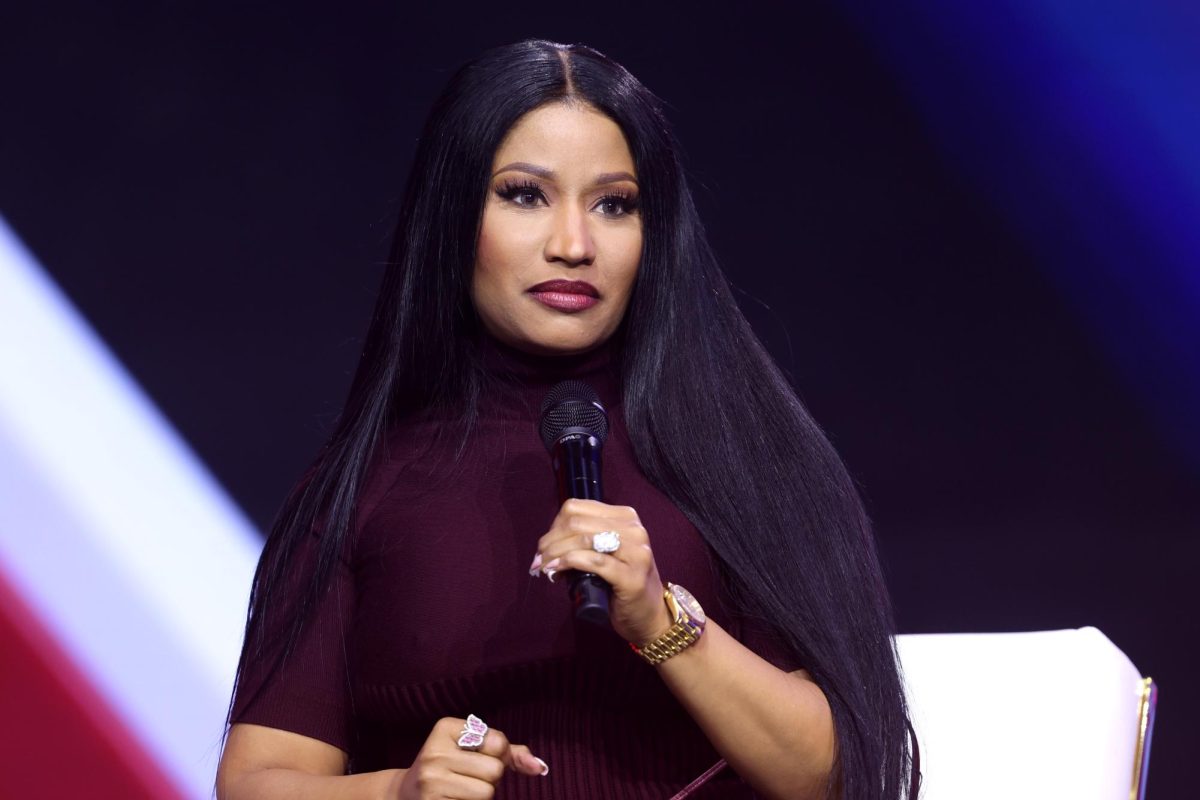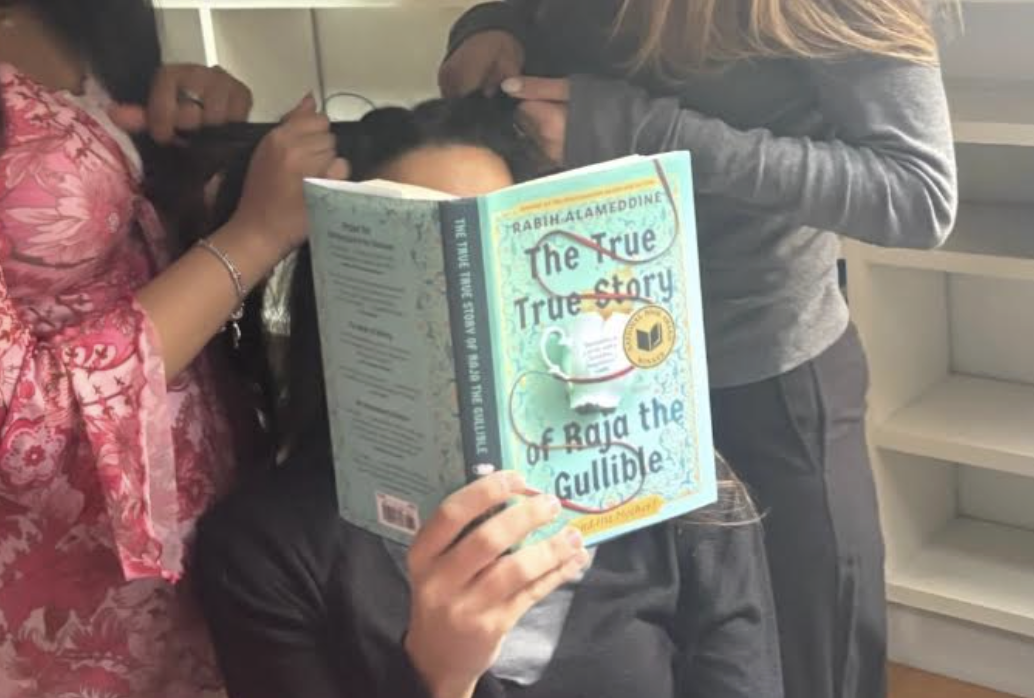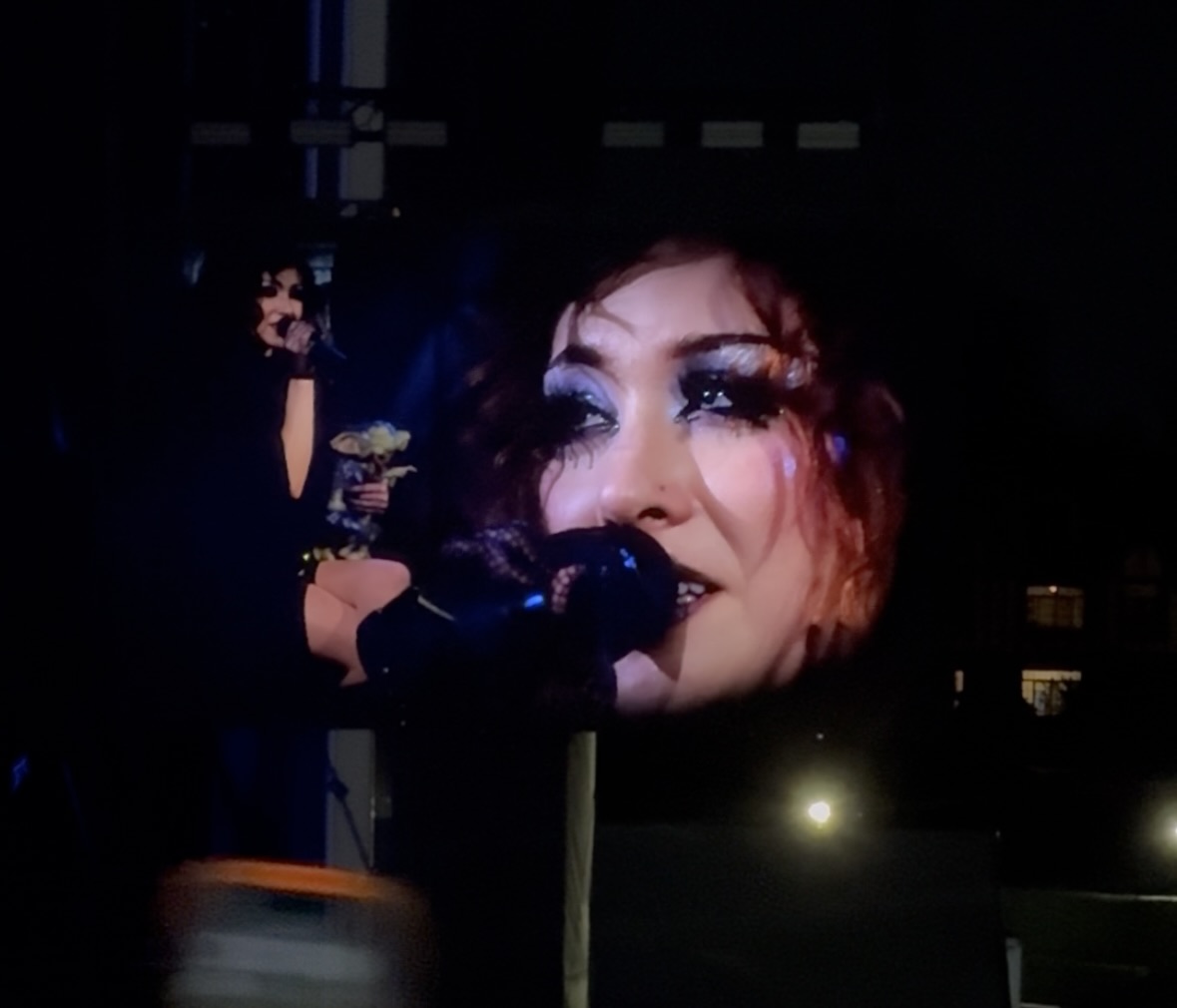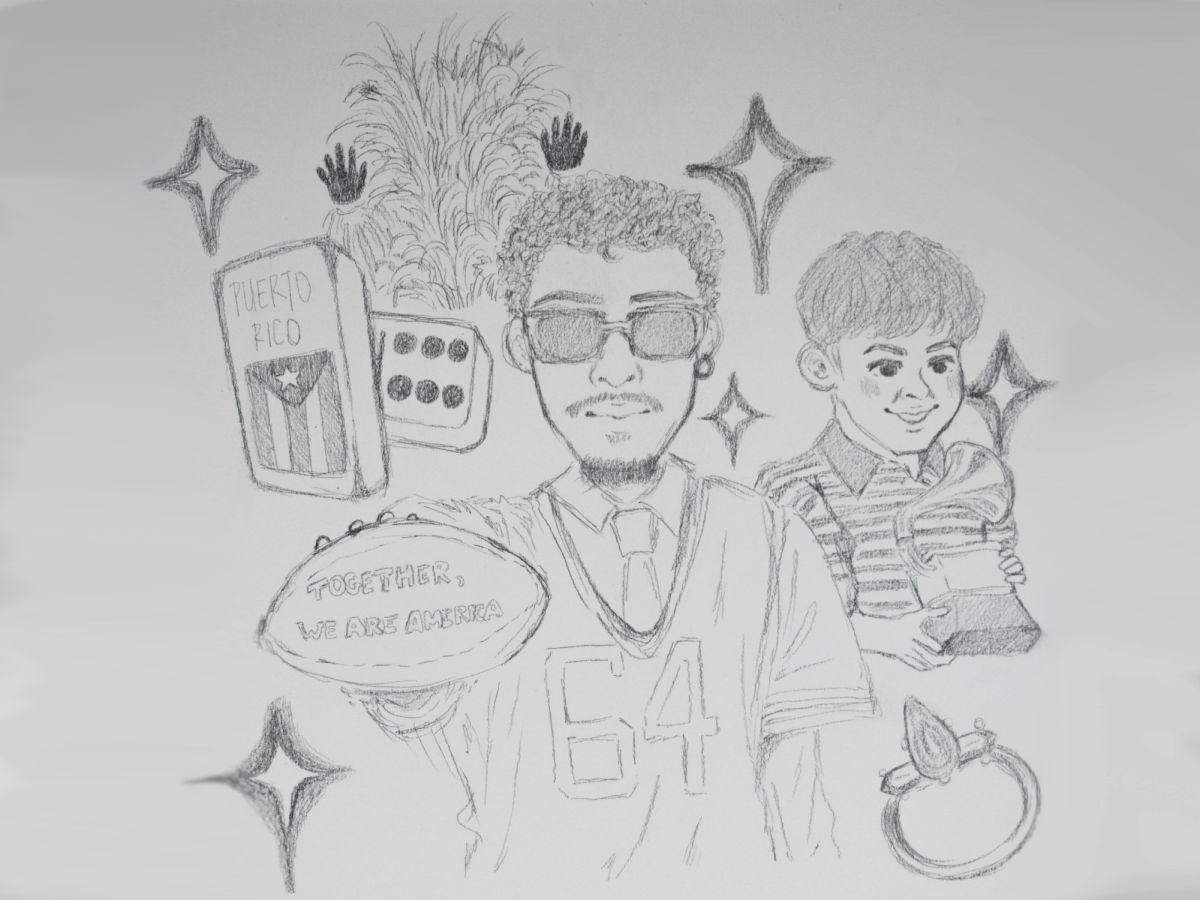“My whole life I’ve had one foot out of the door,” she said between drags of an American Spirit cigarette. “I guess it just made sense to commit to nothing, you know. Just keep my options open.”
Developed by Sarah Kucserka and Veronica West, High Fidelity is a refreshing and modern take on the 1995 novel by Nick Hornby and the 2000 film starring John Cusack.
Unlike its two predecessors, Kucserka and West have converted Hornby’s simply straightforward plot about breakups and trying to repair what happened into something of greater complexity and dimension.
The extension of the storyline from trying to repair your heartbreak — plus now exploring topics such as parenthood and chasing dreams — is something that millennials can relate to.
For this remake, the gender roles have flipped. Now Rob, played by actress Zoë Kravitz, is a biracial and bisexual woman who owns a record shop called Championship Vinyl in Brooklyn, and works with her two friends Simon and Cherise.
The show follows Rob, a pop culture and top five list aficionado, as she attempts to figure out why all of her relationships have failed.
Her obsession with top five lists becomes of use to her as she uses her top five heartbreaks list as a resource to research what went wrong.
High Fidelity explores Rob’s attempts at trying to cope and get over her most recent heartbreak — her fiancé breaking off their engagement and leaving her.
At other times, High Fidelity takes on a number of other relatable topics.
It shows what it’s like to leave behind a carefree and adventurous life to become a parent through Rob’s brother, Cameron, as well as the process of becoming who you truly want to be through reinvention.
But most importantly, High Fidelity deals with heartbreak in all of its parts, from attempting to break the pattern of heartbreak to freeing yourself from its constraints.
Heartbreak leads Rob to do dumb things, such as ignoring those who she cares about. Some of her missteps seem right at the moment, but destructive upon reflection.
Unlike the novel or film, the series dives into the stories of others.
Episode eight, “Ballad of the Lonesome Loser,” is told by Simon, who happens to be number three on Rob’s top five heartbreaks list — and he got that distinction when she discovered that he was gay.
The entire episode is dedicated to hearing his story as he refers to himself as “the ballad of the lonesome loser” while working his way through his own top five heartbreaks and attempting to develop a new love.
There is also deep insight on Cherise, Rob’s other friend, who has a strong desire to be a musician and tries to reinvent herself.
Both Rob and Simon constantly crack on her for claiming to always have music brewing, yet never actually having material.
In episode 6, “Weird … But Warm,” Rob offers to sell any records that teenage shoplifters Peachy and Shane press.
Cherise becomes annoyed at Rob for not giving her that offer and referring to herself as a musical visionary.
Rob asks her, “Where’s your record?” and she replies, “I am operating on the element of surprise.”
Cherise is played by African-American actress and singer Da’Vine Joy Randolph. Her portrayal of this character was not the best and comes off as over-the-top and ingenuine.
The majority of her scenes are intended to be funny, yet there is something that just seems off about it. She is a bit too rough and excessive.
Simon and Cherise are modern versions of Barry, portrayed by Jack Black in the film, and Dick, portrayed by Todd Louiso in the film.
Both the film and novel tend to explore just the outer shell of these two characters.
The series, however, excelled in adding dimension to them both by making them two relatable characters that are striving for something.
One of the most impressive elements of High Fidelity, a show centered around music, is the score. Drummer Questlove of the Roots took over as the show’s executive music producer.
The show’s playlist includes a mishmash of artists such as David Bowie, Ann Peebles, Fleetwood Mac and Frank Ocean.
In the film, Marie DeSalle, Rob’s fling who is a singer, performs a stripped-down rendition of Peter Frampton’s “Baby I Love Your Way,” whereas in the series, Liam, portrayed by Thomas DoHerty, performs a gritty cover of “I’ll Make Love to You” by Boyz II Men.
Though Liam’s performance was not as strong as Marie’s, it still shows a unique take on a classic.
Though many have wondered if this new adaptation is actually necessary, the answer is yes.
The series makes viewers feel as if they are part of this friend group and are experiencing these moments with the characters.
The emotions are raw and highlight Kravitz’s acting chops. The pop culture references and score of the series serve as an encyclopedia for those who have yet to know them.
Overall, the show is marvelous and, who knows, maybe it will land on your list of top five streaming series.


